About the Keynote Speaker
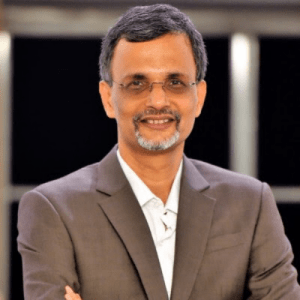 Dr. V. Anantha Nageswaran serves as the Chief Economic Advisor to the Government of India. He wrote a weekly column for Mint for 15 years, as well as co-authored four books. Prior to his current role, Dr. Nageswaran was a part-time member of the Economic Advisory Council to the Prime Minister of India for 2 years and is an honorary senior advisor to the International Financial Services Authority of India. Between 1994 to 2011, he held several positions including Currency Economist at the Union Bank of Switzerland, Head of Research and Investment Consulting in Credit Suisse Private Banking in Asia, and Head of Asia Research and Global Chief Investment Officer at Bank Julius Baer. He graduated from the Indian Institute of Management, Ahmedabad with a Masters in Business Administration and received his PhD in Finance from the University of Massachusetts in Amherst.
Dr. V. Anantha Nageswaran serves as the Chief Economic Advisor to the Government of India. He wrote a weekly column for Mint for 15 years, as well as co-authored four books. Prior to his current role, Dr. Nageswaran was a part-time member of the Economic Advisory Council to the Prime Minister of India for 2 years and is an honorary senior advisor to the International Financial Services Authority of India. Between 1994 to 2011, he held several positions including Currency Economist at the Union Bank of Switzerland, Head of Research and Investment Consulting in Credit Suisse Private Banking in Asia, and Head of Asia Research and Global Chief Investment Officer at Bank Julius Baer. He graduated from the Indian Institute of Management, Ahmedabad with a Masters in Business Administration and received his PhD in Finance from the University of Massachusetts in Amherst.
About the Thematic Address
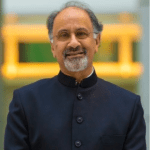
Indermit Gill is Chief Economist of the World Bank Group and Senior Vice President for Development Economics. Before starting this position on September 1, 2022, Gill served as the World Bank’s Vice President for Equitable Growth, Finance, and Institutions, where he helped shape the Bank’s response to the extraordinary series of shocks that have hit developing economies since 2020. Between 2016 and 2021, he was a professor of public policy at Duke University and non-resident senior fellow at the Brookings Institution’s Global Economy and Development program. Gill led the World Bank’s influential 2009 World Development Report on economic geography. His work includes introducing the concept of the “middle-income trap” to describe how countries stagnate after reaching a certain level of income. He has published extensively on key policy issues facing developing countries—among other things, sovereign debt vulnerabilities, green growth and natural-resource wealth, labor markets, and poverty and inequality. Gill has also taught at Georgetown University and the University of Chicago. He holds a Ph.D. in economics from the University of Chicago.
About the Session Speakers
Sajjid Z. Chinoy is J.P. Morgan’s Chief India Economist and also serves on the Advisory Council to the 15th Finance Commission set up by the Government of India. He has previously worked at the International Monetary Fund (IMF) and McKinsey & Company. He has also previously served as a member of the RBI’s “Expert Committee to Revise and Strengthen the Monetary Policy Framework” that proposed inflation targeting in India, was a consultant to the FRBM Review Committee set up by the government to proposed a new fiscal anchor, and a member of the Indian Banks Association (IBA) Monetary Policy Group. Since 2014, he has been ranked as one of the “Best Individuals in Research in India” by Asset Magazine. He has authored several publications on the Indian economy including co-editing a book on Indian economic reform: “Reforming India’s External, Fiscal and Financial Policies” with Dr. Anne O. Krueger. He received his Ph.D. in economics at Stanford University in 2001.
is J.P. Morgan’s Chief India Economist and also serves on the Advisory Council to the 15th Finance Commission set up by the Government of India. He has previously worked at the International Monetary Fund (IMF) and McKinsey & Company. He has also previously served as a member of the RBI’s “Expert Committee to Revise and Strengthen the Monetary Policy Framework” that proposed inflation targeting in India, was a consultant to the FRBM Review Committee set up by the government to proposed a new fiscal anchor, and a member of the Indian Banks Association (IBA) Monetary Policy Group. Since 2014, he has been ranked as one of the “Best Individuals in Research in India” by Asset Magazine. He has authored several publications on the Indian economy including co-editing a book on Indian economic reform: “Reforming India’s External, Fiscal and Financial Policies” with Dr. Anne O. Krueger. He received his Ph.D. in economics at Stanford University in 2001.
Arun Kumar .webp) most recently served as the Chairman and CEO of KPMG in India, an organization consisting of several thousand professionals engaged in providing assurance, tax, and advisory services. He was a member of the global board of directors of KPMG. He previously served in President Obama’s Administration as Assistant Secretary of Commerce for Global Markets and Director General of the U.S. & Foreign Commercial Service (USFCS). As the Administration’s lead official to promote U.S. exports, foreign direct investment, and enhanced market access around the world, he led a team of 1,700 professionals in 78 countries and all 50 United States. Prior to his stint in Washington, DC, Arun was a partner and a member of the board of KPMG LLP in the US. Based in Silicon Valley, he led KPMG’s Management Consulting practice in the West for many years. He has also been a company mentor and entrepreneur in Silicon Valley. Arun is a member of the Council on Foreign Relations. He is the author of The Global Trade Paradigm (HarperCollins, 2023) as well as two books of poetry.
most recently served as the Chairman and CEO of KPMG in India, an organization consisting of several thousand professionals engaged in providing assurance, tax, and advisory services. He was a member of the global board of directors of KPMG. He previously served in President Obama’s Administration as Assistant Secretary of Commerce for Global Markets and Director General of the U.S. & Foreign Commercial Service (USFCS). As the Administration’s lead official to promote U.S. exports, foreign direct investment, and enhanced market access around the world, he led a team of 1,700 professionals in 78 countries and all 50 United States. Prior to his stint in Washington, DC, Arun was a partner and a member of the board of KPMG LLP in the US. Based in Silicon Valley, he led KPMG’s Management Consulting practice in the West for many years. He has also been a company mentor and entrepreneur in Silicon Valley. Arun is a member of the Council on Foreign Relations. He is the author of The Global Trade Paradigm (HarperCollins, 2023) as well as two books of poetry.
 Dr. Vivek Lall is the Chief Executive of General Atomics Global Corporation based in San Diego, California. GA and affiliated companies operate on five continents. The company produces a series of unmanned aircraft (Predator/Reaper/Guardian), produces electro-magnetic aircraft launch and recovery systems, satellite surveillance, electro-magnetic rail gun, high power laser, hypervelocity projectile, and power conversion systems, is the principal private sector participant in thermonuclear fusion research through its internationally recognized DIII-D Facility.
Dr. Vivek Lall is the Chief Executive of General Atomics Global Corporation based in San Diego, California. GA and affiliated companies operate on five continents. The company produces a series of unmanned aircraft (Predator/Reaper/Guardian), produces electro-magnetic aircraft launch and recovery systems, satellite surveillance, electro-magnetic rail gun, high power laser, hypervelocity projectile, and power conversion systems, is the principal private sector participant in thermonuclear fusion research through its internationally recognized DIII-D Facility.
GA is also a leader in development of next-generation nuclear fission and high-temperature materials technologies. Lall has been appointed to the following Boards: Advisory Board of the Quad Investors Network, United States Technical Team member to the NATO STO (Science and Technology Organization),Industry Advisory Board of the American Society of Mechanical Engineers (ASME),International Advisory Group of the US Chamber of Commerce, Board of Directors of US Japan Business Council, Global Board of Directors of the US India Business Council, Senior Advisor to the Center for Commerce and Diplomacy at the University of California San Diego, Board of the Center for Advancing Global Business at San Diego State University and US Cabinet Secretary heading Department of Transportation. Lall served as Vice President of Aeronautics Strategy and Business Development at Lockheed Martin, Chief Executive of U.S. and International Strategic Development at General Atomics Electromagnetic Systems and held leadership roles with The Boeing Company where he was appointed as Vice President and India Country Head, Boeing Defense Space & Security.
In addition, he has worked as an adjunct faculty member at Embry- Riddle, McConnell Air Force Base, served as the founding Co-Chair of the US-India Aviation Cooperation Program and prior to Boeing he worked for Raytheon and conducted research with NASA Ames Research Center in various multidisciplinary engineering fields. Lall was also a special advisor to the United Nations in New York in broadband and associated cyber security issues. He earned a Bachelor of Mechanical Engineering degree from Carleton University in Canada, a Masters of Aeronautical Engineering degree from Embry-Riddle Aeronautical University in Florida, his Ph.D. in Aerospace Engineering from Wichita State University in Kansas, his MBA from City University in Seattle and has completed management and executive courses at the American Management Association in Washington DC.
He was also conferred the President’s Lifetime Achievement Award by the President of the United States of America in September 2022, conferred the “World Leader Award” by the House of Lords in the United Kingdom in 2023 and the Golden Peacock award by the Institute of Directors (IOD) at United Arab Emirates in 2024. He is also an Ambassador of the State of Arkansas and a Kentucky Colonel which is the most well-known US colonelcies conferred to several past US Presidents. He was granted the Grand Cross by His highness Mahmoud Salah Al Din Assaf and Cambridge (UK) has listed him as one of only 2000 Outstanding Scientists of the Twentieth Century as well was President of the Mathematical Association of America. He has authored over hundred articles in various journals. He was also trained as a private pilot at the Phoenix International Flight Training Center in Florida.
Sabina Alkire directs the Oxford Poverty and Human Development Initiative (OPHI) at ODID. Her research interests include multidimensional poverty measurement and analysis, welfare economics, the capability approach, the measurement of freedoms and human development. Together with Professor James Foster, she developed the Alkire-Foster (AF) method for measuring multidimensional poverty, a flexible technique that can incorporate different dimensions, or aspects of poverty, to create measures tailored to each context. With colleagues at OPHI this has been applied and implemented empirically to produce a Multidimensional Poverty Index (MPI). The MPI offers a tool to identify who is poor by considering the range of deprivations they suffer. It is used to report a headline figure of poverty (the MPI), which can be unpacked to provide a detailed information platform for policy design showing how people are poor nationally, and how they are poor by areas, groups, and by each indicator. Previously, she worked at the George Washington University, Harvard University, the Human Security Commission, and the World Bank. She has a DPhil in Economics from the University of Oxford. She holds a DPhil in Economics, an Msc in Economics for Development and an MPhil in Christian Political Ethics from the University of Oxford.
directs the Oxford Poverty and Human Development Initiative (OPHI) at ODID. Her research interests include multidimensional poverty measurement and analysis, welfare economics, the capability approach, the measurement of freedoms and human development. Together with Professor James Foster, she developed the Alkire-Foster (AF) method for measuring multidimensional poverty, a flexible technique that can incorporate different dimensions, or aspects of poverty, to create measures tailored to each context. With colleagues at OPHI this has been applied and implemented empirically to produce a Multidimensional Poverty Index (MPI). The MPI offers a tool to identify who is poor by considering the range of deprivations they suffer. It is used to report a headline figure of poverty (the MPI), which can be unpacked to provide a detailed information platform for policy design showing how people are poor nationally, and how they are poor by areas, groups, and by each indicator. Previously, she worked at the George Washington University, Harvard University, the Human Security Commission, and the World Bank. She has a DPhil in Economics from the University of Oxford. She holds a DPhil in Economics, an Msc in Economics for Development and an MPhil in Christian Political Ethics from the University of Oxford.
Prerna Singh  is Mahatma Gandhi Associate Professor of Political Science and International Studies, with appointments in the School of Public Health and the Department of Sociology at Brown University. She has published numerous award-winning books and articles on human development, public health, ethnicity and nationalism. Her first book, How Solidarity Works for Welfare was awarded best book prizes from both the American Political Science and the American Sociological Associations. Singh has been awarded fellowships by the Center for Advanced Study of Behavioral Sciences at Stanford University, the Social Science Research Council, the Andrew Carnegie foundation, the American Academy of Berlin, the Harvard Academy for International and Area Studies, and the American Institute of Indian Studies. She has shared her research with scholarly, policy and popular audiences in over a hundred lectures, including keynote addresses, delivered across twenty different countries.
is Mahatma Gandhi Associate Professor of Political Science and International Studies, with appointments in the School of Public Health and the Department of Sociology at Brown University. She has published numerous award-winning books and articles on human development, public health, ethnicity and nationalism. Her first book, How Solidarity Works for Welfare was awarded best book prizes from both the American Political Science and the American Sociological Associations. Singh has been awarded fellowships by the Center for Advanced Study of Behavioral Sciences at Stanford University, the Social Science Research Council, the Andrew Carnegie foundation, the American Academy of Berlin, the Harvard Academy for International and Area Studies, and the American Institute of Indian Studies. She has shared her research with scholarly, policy and popular audiences in over a hundred lectures, including keynote addresses, delivered across twenty different countries.
Mekala Krishnan  is a partner at the McKinsey Global Institute (MGI), McKinsey’s business and economics research arm. Her research focuses on topics related to sustainable and inclusive growth, including climate risk and the net-zero transition, globalization, productivity growth, and gender economics. Her most recent research focuses on the net-zero transition, adaptation and physical climate risk across sectors and geographies, including its implications for companies and countries. She is an author of the recent MGI reports, The net-zero transition: What it would cost, what it would bring, From poverty to empowerment: Raising the bar for sustainable and inclusive growth, and Climate risk and response: Physical hazards and socioeconomic impacts. Her past research has focused on the risks facing global value chains and the future of globalization. Mekala is a frequent speaker on these topics at global conferences as well as with executives at Fortune 500 companies. She has authored numerous articles and her work has been cited in leading business publications, including The Financial Times, The Wall Street Journal, The Economist, and Harvard Business Review. Mekala serves on a Bretton Woods Committee working group on climate finance and on advisory boards for the Greater Boston Chamber of Commerce and for the Sibley School of Mechanical Engineering at Cornell University. She is also on the board of the Global Fund for Women, a leading public foundation dedicated to improving global gender equality. She was previously a member of a task force at the Hutchins Center on Fiscal and Monetary Policy at Brookings focused on improving productivity measurement. Mekala received her Ph.D. and M.S. degrees in Mechanical Engineering from Cornell University in 2011. Prior to Cornell, she received a Bachelor of Technology degree in Mechanical Engineering in 2006 from the Indian Institute of Technology Delhi.
is a partner at the McKinsey Global Institute (MGI), McKinsey’s business and economics research arm. Her research focuses on topics related to sustainable and inclusive growth, including climate risk and the net-zero transition, globalization, productivity growth, and gender economics. Her most recent research focuses on the net-zero transition, adaptation and physical climate risk across sectors and geographies, including its implications for companies and countries. She is an author of the recent MGI reports, The net-zero transition: What it would cost, what it would bring, From poverty to empowerment: Raising the bar for sustainable and inclusive growth, and Climate risk and response: Physical hazards and socioeconomic impacts. Her past research has focused on the risks facing global value chains and the future of globalization. Mekala is a frequent speaker on these topics at global conferences as well as with executives at Fortune 500 companies. She has authored numerous articles and her work has been cited in leading business publications, including The Financial Times, The Wall Street Journal, The Economist, and Harvard Business Review. Mekala serves on a Bretton Woods Committee working group on climate finance and on advisory boards for the Greater Boston Chamber of Commerce and for the Sibley School of Mechanical Engineering at Cornell University. She is also on the board of the Global Fund for Women, a leading public foundation dedicated to improving global gender equality. She was previously a member of a task force at the Hutchins Center on Fiscal and Monetary Policy at Brookings focused on improving productivity measurement. Mekala received her Ph.D. and M.S. degrees in Mechanical Engineering from Cornell University in 2011. Prior to Cornell, she received a Bachelor of Technology degree in Mechanical Engineering in 2006 from the Indian Institute of Technology Delhi.
Raghuram Rajan  is the Katherine Dusak Miller Distinguished Service Professor of Finance at the University of Chicago’s Booth School. Prior to that, he was the 23rd Governor of the Reserve Bank of India from 2013 to 2016, as well as the Vice Chairman of the Board of the Bank for International Settlements from 2015 to 2016. Dr. Rajan was the Chief Economist and Director of Research at the International Monetary Fund from 2003 to 2006. Dr. Rajan’s research interests range from banking and monetary policy to corporate finance, political economy, communities, and economic development. He co-authored Saving Capitalism from the Capitalists with Luigi Zingales in 2003. He then wrote Fault Lines: How Hidden Fractures Still Threaten the World Economy, for which he was awarded the Financial Times-Goldman Sachs prize for best business book in 2010. In 2019, his book, The Third Pillar: How Markets and the State Leave the Community Behind was a finalist for the Financial Times/McKinsey Business Book of the Year Award. His most recent book, with Rohit Lamba, is Breaking the Mold on reimagining India’s economic future. Dr. Rajan was awarded the inaugural Fischer Black award for the best financial economist under the age of 40 in 2003, the Deutsche Bank prize for financial economics in 2013, the Euromoney Central Bank Governor of the Year in 2014, and Banker magazine’s Global Central Bank Governor of the Year in 2016.
is the Katherine Dusak Miller Distinguished Service Professor of Finance at the University of Chicago’s Booth School. Prior to that, he was the 23rd Governor of the Reserve Bank of India from 2013 to 2016, as well as the Vice Chairman of the Board of the Bank for International Settlements from 2015 to 2016. Dr. Rajan was the Chief Economist and Director of Research at the International Monetary Fund from 2003 to 2006. Dr. Rajan’s research interests range from banking and monetary policy to corporate finance, political economy, communities, and economic development. He co-authored Saving Capitalism from the Capitalists with Luigi Zingales in 2003. He then wrote Fault Lines: How Hidden Fractures Still Threaten the World Economy, for which he was awarded the Financial Times-Goldman Sachs prize for best business book in 2010. In 2019, his book, The Third Pillar: How Markets and the State Leave the Community Behind was a finalist for the Financial Times/McKinsey Business Book of the Year Award. His most recent book, with Rohit Lamba, is Breaking the Mold on reimagining India’s economic future. Dr. Rajan was awarded the inaugural Fischer Black award for the best financial economist under the age of 40 in 2003, the Deutsche Bank prize for financial economics in 2013, the Euromoney Central Bank Governor of the Year in 2014, and Banker magazine’s Global Central Bank Governor of the Year in 2016.
About the Reception Speaker
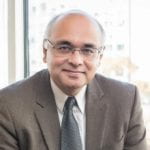 Junaid Kamal Ahmad is Vice President of Operations at the Multilateral Investment Guarantee Agency (MIGA), the Political Risk Insurance and Credit Enhancement arm of the World Bank Group (WBG). He is responsible for advancing and enhancing MIGA’s brand partnering across WBG and with financial institutions, private investors, and development actors to originate and pursue meaningful, impact-driven projects. Mr. Ahmad also leads the Operations team of the Agency to deliver on MIGA’s mandate of mobilizing private finance for development projects in emerging markets and developing economies (EMDEs).
Junaid Kamal Ahmad is Vice President of Operations at the Multilateral Investment Guarantee Agency (MIGA), the Political Risk Insurance and Credit Enhancement arm of the World Bank Group (WBG). He is responsible for advancing and enhancing MIGA’s brand partnering across WBG and with financial institutions, private investors, and development actors to originate and pursue meaningful, impact-driven projects. Mr. Ahmad also leads the Operations team of the Agency to deliver on MIGA’s mandate of mobilizing private finance for development projects in emerging markets and developing economies (EMDEs).
Mr. Ahmad, a Bangladeshi national, was previously the Country Director for the World Bank in India. He joined the Bank in 1991 as a Young Professional and worked on infrastructure development in Africa and Eastern Europe. He has since held several management positions, leading the Bank’s programs in diverse regions including Africa, the Middle East and North Africa, and South Asia. Mr. Ahmad served as the Chief of Staff and earlier as Special Assistant to the President of the World Bank Group. During a part of his time at the Bank, Mr. Ahmad was based in Johannesburg and New Delhi and in 2004, he was a core member of the World Development Report: Making Services Work for Poor People.
Throughout his career, Mr. Ahmad has focused on the role of service delivery in building and leveraging state capability and markets towards the goals of economic development and sustainability. In his work, Mr. Ahmad has focused on public finance and federalism and the management of urban governments across diverse country contexts from fragile and conflict settings, low and middle income, to large federations. In addition, he has worked on public-private partnerships in infrastructure sectors and with municipal governments, focusing on the mobilization of private equity and long-term debt from capital markets. As the first Senior Director of the World Bank’s Water Global Practice and the former Country Director for India, Mr. Ahmad initiated and oversaw multi-billion-dollar sector and country programs covering finance, infrastructure, and human development. He is recognized for his strategic leadership of teams to deliver impact at scale.
Mr. Ahmad holds a PhD in Applied Economics from Stanford University, a 2-year MPA from Harvard University and a BA in Economics from Brown University. Prior to joining the World Bank Group, Mr. Ahmad worked in the Planning Commission, Government of Bangladesh, in the areas of trade and industrial policy. Mr. Ahmad has published on fiscal federalism and decentralization and on various aspects of infrastructure reform and service delivery.
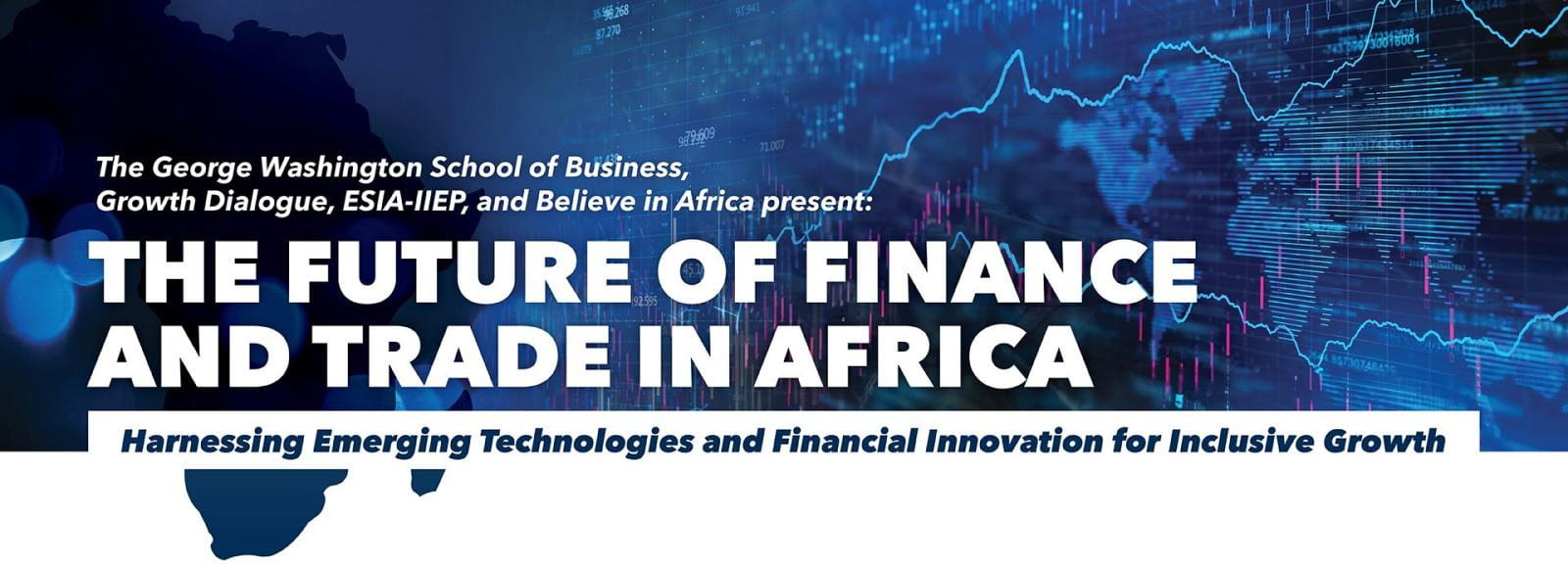
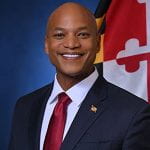 Wes Moore is the 63rd Governor of the state of Maryland. He is Maryland’s first Black Governor in the state’s 246-year history, and is just the third African American elected Governor in the history of the United States. Moore is a proud graduate of Valley Forge Military Academy and College, where he received an Associate’s degree in 1998, and was commissioned as a second lieutenant in the U.S. Army. Afterward, he went on to earn his Bachelor’s in international relations and economics at Johns Hopkins University in Baltimore, where he graduated Phi Beta Kappa. While at Johns Hopkins, Moore interned in the office of former Baltimore Mayor Kurt Schmoke. Moore was the first Black Rhodes Scholar in the history of Johns Hopkins University. As A Rhodes Scholar, he earned a Master’s in international relations from Wolfson College at Oxford. In 2005, Moore deployed to Afghanistan as a captain with the 82nd Airborne Division, leading soldiers in combat. Immediately upon returning home, Moore served as a White House Fellow, advising on issues of national security and international relations.
Wes Moore is the 63rd Governor of the state of Maryland. He is Maryland’s first Black Governor in the state’s 246-year history, and is just the third African American elected Governor in the history of the United States. Moore is a proud graduate of Valley Forge Military Academy and College, where he received an Associate’s degree in 1998, and was commissioned as a second lieutenant in the U.S. Army. Afterward, he went on to earn his Bachelor’s in international relations and economics at Johns Hopkins University in Baltimore, where he graduated Phi Beta Kappa. While at Johns Hopkins, Moore interned in the office of former Baltimore Mayor Kurt Schmoke. Moore was the first Black Rhodes Scholar in the history of Johns Hopkins University. As A Rhodes Scholar, he earned a Master’s in international relations from Wolfson College at Oxford. In 2005, Moore deployed to Afghanistan as a captain with the 82nd Airborne Division, leading soldiers in combat. Immediately upon returning home, Moore served as a White House Fellow, advising on issues of national security and international relations. Congresswoman Sheila Cherfilus-McCormick, the first Black woman to represent Florida’s 20th congressional district, was re-elected to the U.S. House of Representatives in January 2023 to serve a second term. Congresswoman Cherfilus-McCormick is honored to serve on the House Committee on Foreign Affairs and the House Committee on Veterans’ Affairs as the Ranking Member of the Subcommittee on Technology Modernization. She is also the Chair of the Diversity & Inclusion Task Force for the Democratic Women’s Caucus, a Co-Chair of the Haiti Caucus, and serves as a member of the Congressional Black Caucus. Congresswoman Cherfilus-McCormick earned her Bachelor of Arts in Political Science and Government from Howard University. In further pursuit of education, the Congresswoman also earned a Juris Doctorate from St. Thomas University. While in office, she remains committed to tackling the growing housing crisis, inadequate access to quality health care, and lack of equitable opportunities throughout her district and country.
Congresswoman Sheila Cherfilus-McCormick, the first Black woman to represent Florida’s 20th congressional district, was re-elected to the U.S. House of Representatives in January 2023 to serve a second term. Congresswoman Cherfilus-McCormick is honored to serve on the House Committee on Foreign Affairs and the House Committee on Veterans’ Affairs as the Ranking Member of the Subcommittee on Technology Modernization. She is also the Chair of the Diversity & Inclusion Task Force for the Democratic Women’s Caucus, a Co-Chair of the Haiti Caucus, and serves as a member of the Congressional Black Caucus. Congresswoman Cherfilus-McCormick earned her Bachelor of Arts in Political Science and Government from Howard University. In further pursuit of education, the Congresswoman also earned a Juris Doctorate from St. Thomas University. While in office, she remains committed to tackling the growing housing crisis, inadequate access to quality health care, and lack of equitable opportunities throughout her district and country.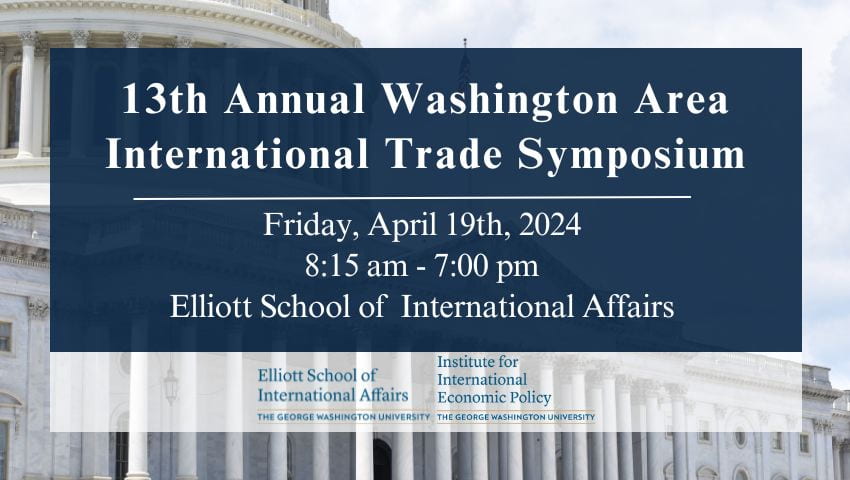


 Sonali Jain-Chandra is Division Chief and Mission Chief for China at the International Monetary Fund’s Asia and Pacific Department. She has wide-ranging country experience at the IMF, having worked on China, India, Hong Kong SAR, Korea, Indonesia, Ethiopia, Cambodia, Nepal and Bhutan. She was also a member of the Regional Studies Division, and has authored many chapters of the IMF publication, Regional Economic Outlook. She previously worked in the IMF’s Strategy, Policy, and Review Department on vulnerabilities in emerging markets and advanced economies. Ms. Jain-Chandra’s research interests and publications have mainly focused on labor markets, capital flows, international banking linkages, and financial inclusion and deepening. She holds a Ph.D. in Economics from Columbia University, a B.A. and M.A. in Philosophy, Politics and Economics from Oxford University, and a B.A. in Economics from Lady Shri Ram College, University of Delhi.
Sonali Jain-Chandra is Division Chief and Mission Chief for China at the International Monetary Fund’s Asia and Pacific Department. She has wide-ranging country experience at the IMF, having worked on China, India, Hong Kong SAR, Korea, Indonesia, Ethiopia, Cambodia, Nepal and Bhutan. She was also a member of the Regional Studies Division, and has authored many chapters of the IMF publication, Regional Economic Outlook. She previously worked in the IMF’s Strategy, Policy, and Review Department on vulnerabilities in emerging markets and advanced economies. Ms. Jain-Chandra’s research interests and publications have mainly focused on labor markets, capital flows, international banking linkages, and financial inclusion and deepening. She holds a Ph.D. in Economics from Columbia University, a B.A. and M.A. in Philosophy, Politics and Economics from Oxford University, and a B.A. in Economics from Lady Shri Ram College, University of Delhi.
 Dr. V. Anantha Nageswaran serves as the Chief Economic Advisor to the Government of India. He wrote a weekly column for Mint for 15 years, as well as co-authored four books. Prior to his current role, Dr. Nageswaran was a part-time member of the Economic Advisory Council to the Prime Minister of India for 2 years and is an honorary senior advisor to the International Financial Services Authority of India. Between 1994 to 2011, he held several positions including Currency Economist at the Union Bank of Switzerland, Head of Research and Investment Consulting in Credit Suisse Private Banking in Asia, and Head of Asia Research and Global Chief Investment Officer at Bank Julius Baer. He graduated from the Indian Institute of Management, Ahmedabad with a Masters in Business Administration and received his PhD in Finance from the University of Massachusetts in Amherst.
Dr. V. Anantha Nageswaran serves as the Chief Economic Advisor to the Government of India. He wrote a weekly column for Mint for 15 years, as well as co-authored four books. Prior to his current role, Dr. Nageswaran was a part-time member of the Economic Advisory Council to the Prime Minister of India for 2 years and is an honorary senior advisor to the International Financial Services Authority of India. Between 1994 to 2011, he held several positions including Currency Economist at the Union Bank of Switzerland, Head of Research and Investment Consulting in Credit Suisse Private Banking in Asia, and Head of Asia Research and Global Chief Investment Officer at Bank Julius Baer. He graduated from the Indian Institute of Management, Ahmedabad with a Masters in Business Administration and received his PhD in Finance from the University of Massachusetts in Amherst.
 is J.P. Morgan’s Chief India Economist and also serves on the Advisory Council to the 15th Finance Commission set up by the Government of India. He has previously worked at the International Monetary Fund (IMF) and McKinsey & Company. He has also previously served as a member of the RBI’s “Expert Committee to Revise and Strengthen the Monetary Policy Framework” that proposed inflation targeting in India, was a consultant to the FRBM Review Committee set up by the government to proposed a new fiscal anchor, and a member of the Indian Banks Association (IBA) Monetary Policy Group. Since 2014, he has been ranked as one of the “Best Individuals in Research in India” by Asset Magazine. He has authored several publications on the Indian economy including co-editing a book on Indian economic reform: “Reforming India’s External, Fiscal and Financial Policies” with Dr. Anne O. Krueger. He received his Ph.D. in economics at Stanford University in 2001.
is J.P. Morgan’s Chief India Economist and also serves on the Advisory Council to the 15th Finance Commission set up by the Government of India. He has previously worked at the International Monetary Fund (IMF) and McKinsey & Company. He has also previously served as a member of the RBI’s “Expert Committee to Revise and Strengthen the Monetary Policy Framework” that proposed inflation targeting in India, was a consultant to the FRBM Review Committee set up by the government to proposed a new fiscal anchor, and a member of the Indian Banks Association (IBA) Monetary Policy Group. Since 2014, he has been ranked as one of the “Best Individuals in Research in India” by Asset Magazine. He has authored several publications on the Indian economy including co-editing a book on Indian economic reform: “Reforming India’s External, Fiscal and Financial Policies” with Dr. Anne O. Krueger. He received his Ph.D. in economics at Stanford University in 2001..webp)





 Junaid Kamal Ahmad is Vice President of Operations at the Multilateral Investment Guarantee Agency (MIGA), the Political Risk Insurance and Credit Enhancement arm of the World Bank Group (WBG). He is responsible for advancing and enhancing MIGA’s brand partnering across WBG and with financial institutions, private investors, and development actors to originate and pursue meaningful, impact-driven projects. Mr. Ahmad also leads the Operations team of the Agency to deliver on MIGA’s mandate of mobilizing private finance for development projects in emerging markets and developing economies (EMDEs).
Junaid Kamal Ahmad is Vice President of Operations at the Multilateral Investment Guarantee Agency (MIGA), the Political Risk Insurance and Credit Enhancement arm of the World Bank Group (WBG). He is responsible for advancing and enhancing MIGA’s brand partnering across WBG and with financial institutions, private investors, and development actors to originate and pursue meaningful, impact-driven projects. Mr. Ahmad also leads the Operations team of the Agency to deliver on MIGA’s mandate of mobilizing private finance for development projects in emerging markets and developing economies (EMDEs).


